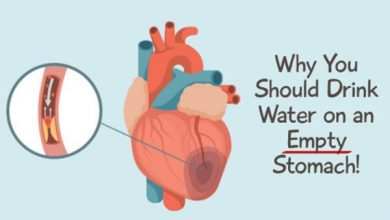Top 16 Ozempic foods to Avoid for Weight loss

Ozempic is a type 2 diabetes medicine that helps manage blood sugar levels. Changing your diet and taking medicine can help you control your diabetes. While there are foods that can benefit people with diabetes, there are other ozempic foods to avoid or limited when using Ozempic.
In this post, we will go through some foods that should be avoided or limited when taking Ozempic for proper blood sugar management.
In This Article
What is Ozempic used to Treat
Ozempic (semaglutide) is a prescription medicine for treating type 2 diabetes. It is a glucagon-like peptide-1 (GLP-1) receptor agonist, which works by helping the pancreas in the release of insulin when blood sugar levels are high, lowering the amount of glucose generated by the liver, and slowing digestion.
Ozempic is often used with a good diet and exercise program to assist in controlling blood sugar levels in type 2 diabetes patients who have not achieved adequate glycemic control with other drugs or cannot handle other diabetic treatments. It is not prescribed for treating type 1 diabetes or diabetic ketoacidosis.
Ozempic foods to Avoid for Weight loss

Here are 16 lists of Ozempic foods to Avoid:
1. Processed and Refined Carbohydrates
Ozempic foods to avoid, like Processed and refined carbohydrates. These carbs have been deprived of fibre and minerals, which can result in blood sugar spikes and insulin resistance. Opting for whole grains like whole wheat bread, brown rice, and quinoa is best.
2. Sugary drinks
Sugary drinks, such as soda and fruit juice, can induce a sudden jump in blood sugar levels, which can be dangerous for people with diabetes. Drink water, unsweetened tea, or sparkling water instead.
3. Fried and fatty foods
Fried and fatty foods include a lot of calories and harmful fats, which can lead to weight gain and insulin resistance. Instead, choose grilled, baked, or roasted items.
4. High-fat Dairy Products
Full-fat dairy products contain a lot of saturated fat, which can cause heart disease. Instead, choose low-fat or no-fat products.
5. Red meat and processed meat
The consumption of red and processed meat has been related to an increased risk of heart disease and cancer. Limit your intake of these items and replace them with lean protein sources such as chicken, fish, and plant-based proteins.
6. High-sugar breakfast cereals
These breakfast choices may contain a lot of added sugar, which can cause blood sugar fluctuations. Look for sugar-free cereals and granola bars or whole-grain oatmeal.
7. Candy, cookies, and other sweets
These foods contain a lot of sugar and can induce blood sugar fluctuations. Limit your intake and seek healthy alternatives such as fruit or dark chocolate in moderation.
8. Alcohol
Foods to avoid while taking ozempic is alcohol. Because Alcohol can alter blood sugar levels and interact with diabetic medicines, it is better to minimize alcohol consumption and use lower-sugar options such as soda water.
9. Fast food and junk food
What foods not to eat with ozempic? Of course, fast food and junk food. These foods are usually heavy in calories, bad fats, and added sugar. Choose healthier options, such as grilled chicken sandwiches or salads.
10. Canned or Packaged foods
These foods include a lot of sodium and sugar, leading to high blood pressure and increased blood sugar. Look for low-sodium and sugar-free products.
11. Baked goods
Baked goods, such as muffins and pastries, can contain a lot of sugar and bad fats. Limit your intake and opt for healthier options like whole-grain bread or fruit.
12. Margarine and other trans fats
Trans fats can increase the risk of heart disease and inflammation. Instead, use healthy fats like olive oil or avocado.
13. Snack foods
Chips and crackers are heavy in harmful fats and salt. Consider healthier alternatives such as fresh veggies with hummus or air-popped popcorn.
14. Foods with added sauces
Foods to avoid when starting ozempic are added sauces, gravies and dressings. These foods can be high in calories, sugar, and unhealthy fats. Choose dishes with minimal sauces or dressings, or make healthier versions at home.
15. Foods with a high glycemic index
High glycemic index foods can induce blood sugar increases. Select foods with a lower glycemic index, such as sweet potatoes or quinoa.
16. High-calorie desserts and Sweetened beverages
Desserts like cakes and ice cream, as well as sweetened beverages like smoothies and milkshakes, can be high in calories and sugar, contributing to weight gain and poor blood sugar regulation.
Limit these foods and replace them with healthier alternatives such as fresh fruit or unsweetened yogurt. If you must indulge in a sweet treat, keep portions small and consume in moderation.
Frequently Asked Questions & Answers
Q. Can Ozempic prevent diabetes?
Ans-Ozempic (semaglutide) is a type 2 diabetes medicine designed to treat diabetes. But adopting a healthy lifestyle that includes regular exercise, maintaining a healthy weight, and eating a balanced diet, as well as frequent medical check-ups, can help lower the chance of acquiring diabetes.
Q. Can Ozempic be used for weight loss?
Ans- Yes, Ozempic (semaglutide) has been approved by the FDA as a medication for weight management in adults with obesity or overweight with at least one weight-related condition, in addition to its use in treating type 2 diabetes.
Q. Can Ozempic kill you?
Ans- Ozempic (semaglutide) is a prescription drug used to treat type 2 diabetes that is typically safe when used as prescribed by a physician. However, like with many medications, it may cause adverse effects and, in rare circumstances, severe allergic responses.
Conclusion
In conclusion, while using Ozempic to manage type 2 diabetes, changes in diet might be an essential part of treatment. While many foods can be healthy, avoiding or limiting items that can harm blood sugar levels is crucial.
Individuals on Ozempic may help optimize their diabetes management and enhance overall health by avoiding or reducing high-carbohydrate, high-fat, and high-sugar diets. Contact a qualified medical physician or registered dietitian to build a personalized nutritional plan that meets your needs and health objectives.
Be sure to Read: Foods not to Eat with H Pylori
References
- Results – Clinical Review Report: Semaglutide (Ozempic)
- Semaglutide (Ozempic) for the treatment of type 2 diabetes: Overview
- Recent Advances For Type 2 Diabetics Ozempic (Sub-cutaneously administered Drug)





